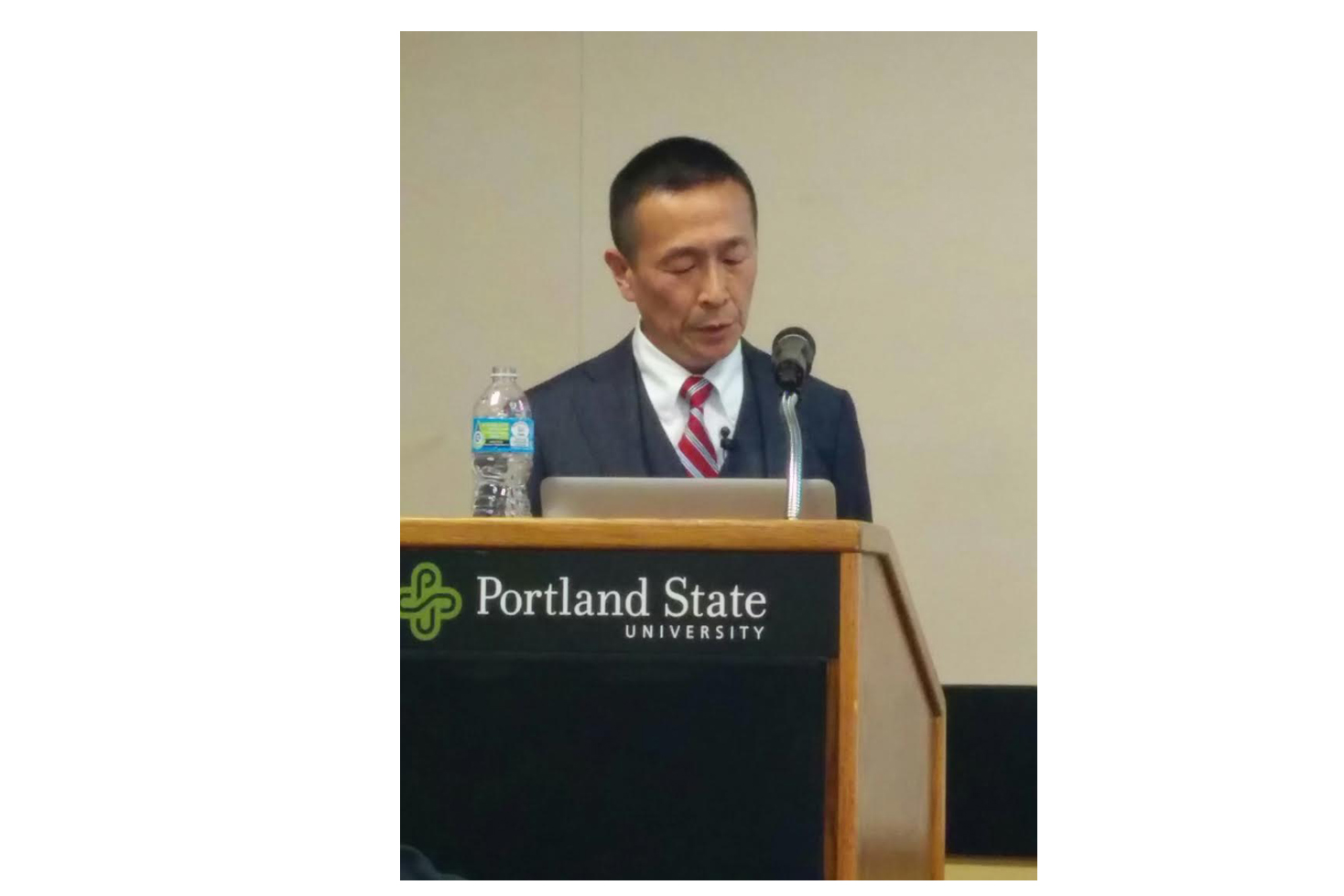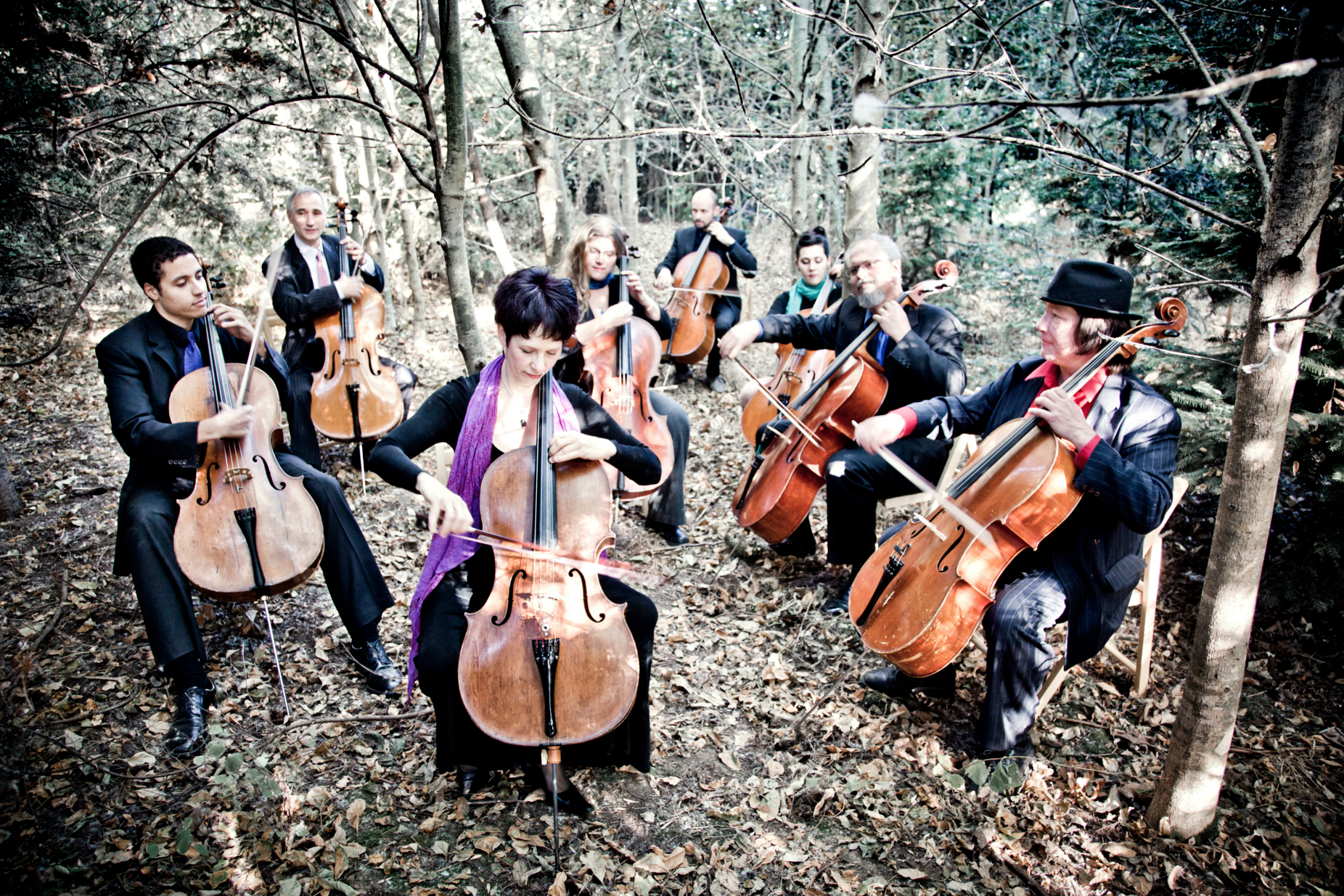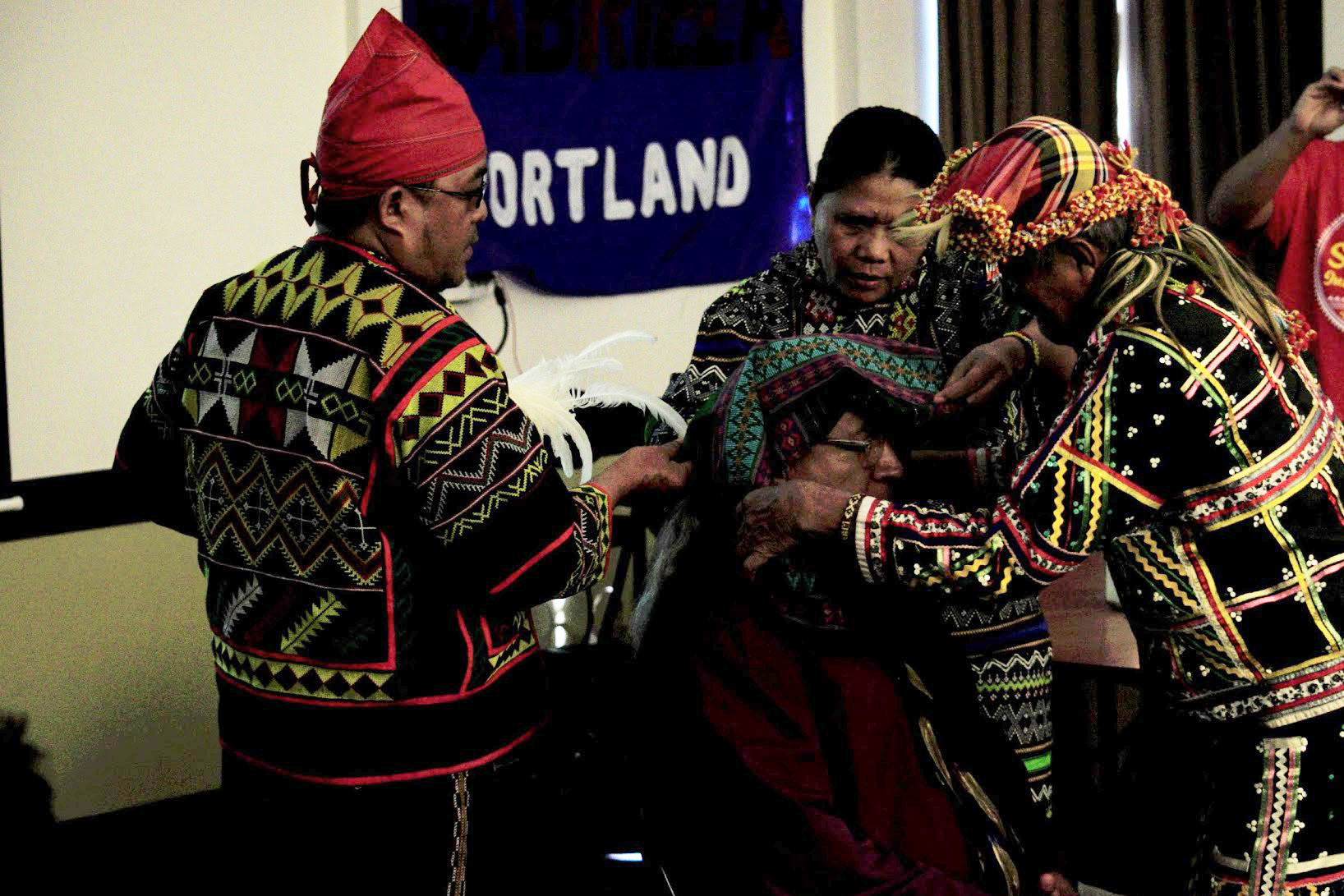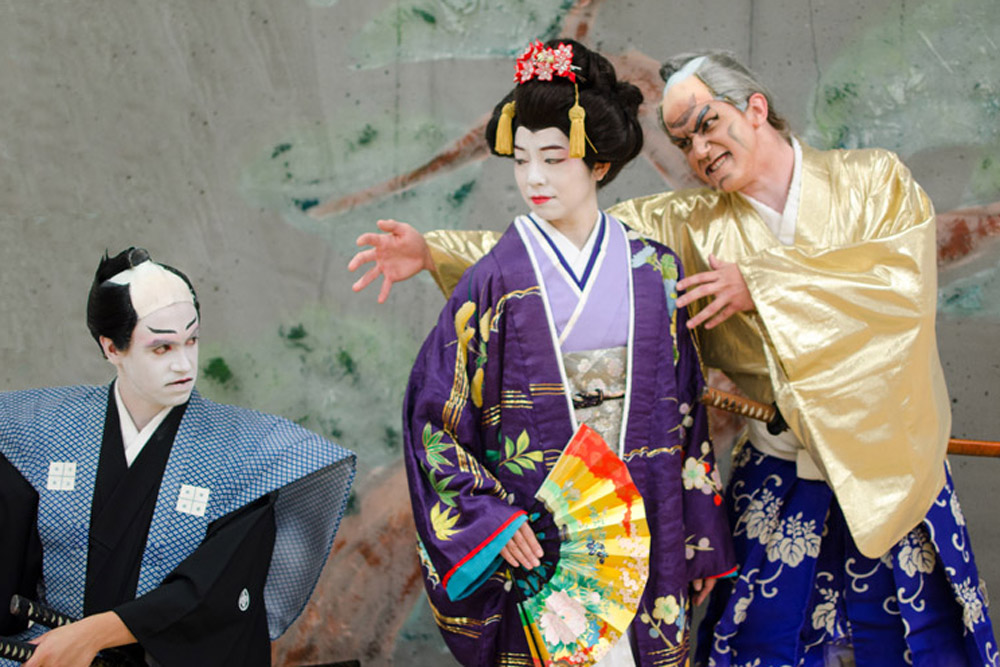What are the minimum standards of living, and how do different cultures attempt to realize those standards?
On April 28 the Portland State Center for Japanese Studies presented a lecture by Dr. Hideaki Shibata, a professor from Rikkyo University in Saitama, titled, “Protecting Welfare in Japan—Keeping Article 25 of the Japanese Constitution Alive.”
Even though the center planned this event a year ago, CJS Director Ken Ruoff said it’s more timely and relevant now than they could have anticipated.
“In the U.S. right now, you see with the wealth gap, people are increasingly asking questions about ‘is there a role for the government to play in mediating the excesses of the capitalistic system and promoting equality,” Ruoff said.
Ruoff explained that the Anglo-American political tradition in the U.S. has primarily been concerned with how to protect the individual from the power of the government, which is an important question. However, he feels another issue has been sidelined: What is the role of the modern government in providing for the basic livelihood of its citizens?
Japan is a capitalist democracy, but Article 25 of its constitution states: “All people shall have the right to maintain the minimum standards of wholesome and cultured living. In all spheres of life, the State shall use its endeavors for the promotion and extension of social welfare and security, and of public health.”
This raises the question: What are those minimum standards of living? Ruoff said it’s hard to imagine the U.S. adopting a similar clause in the Constitution, but he thought it would be interesting to bring over an expert on the issue of welfare in Japan and learn about how leaders have interpreted and argued over it.
Shibata’s interest in Japan’s welfare system has a deeply personal origin. His daughter was diagnosed with a brain tumor at three years old. Her illness and tragic death almost 20 years later prompted him to change the focus of his Ph.D. to social security and to continue arguing in favor of preserving Japan’s Article 25 and state-sponsored health insurance.
“The state should make every effort to ensure the extension of social welfare and security and public health as stated in the article,” Shibata said.
He gave a detailed talk that described the current state of welfare in Japan, how it may be threatened, and what he believes should be done and why. He mentioned different taxes and the effectiveness of raising some instead of others.
For example, he is not in favor of raising the consumption tax for social security purposes, believing instead that progressive taxes should be strengthened—like taxing corporations.
“It is only fair that those who have profited and make a lot of money should pay higher taxes to repay the collaboration and cooperation [with] others that enabled them to achieve their dreams,” Shibata said.
Fortunately for Shibata and those who want to preserve Article 25, the Diet has other priorities before they seriously consider changing or eliminating the article. Nonetheless, Shibata worries about what might happen if they do.
“I wonder what kind of future Japan faces should things carry on the way they are,” Shibata said. “We really should work to keep Article 25 alive.”
Grant Prehn, a senior history major and student in Ruoff’s modern Korean history course, attended the event and found it especially informative and relevant to our current political climate. “I see a lot of parallels with the United States,” Prehn said.
Ruoff thinks PSU students are conscious of and concerned with what these issues could mean for them, such as the cost of education. He asks if higher education should be treated as a right in the way that K–12 public education is a right.
“Thirty years ago people were actually able to put themselves through state university by working,” Ruoff said. “Students today can maybe defray the costs, but I don’t think it’s actually possible for a student to work his or her way through.”
Other countries have looked at these issues differently, and while Ruoff doesn’t know if Japan is a suitable model for the U.S., he thinks Article 25 forces the Japanese to debate the issue in a way we don’t here.
“Americans are still pretty insular, and they have a lot more to learn from the rest of the world than they might like to admit,” Ruoff said. “We don’t have to reinvent the wheel to learn how these issues can be dealt with.”
Ruoff is a part of a group of faculty that think Americans should learn a lot more about the rest of the world. It’s not just enough to bring international students here to learn about the U.S. He wants to see Americans actively look outside themselves.
“If PSU is going to internationalize itself it means we do a better job of teaching our American students about the rest of the world,” Ruoff said. “That’s what the Center for Japanese Studies does by bringing in some of the most thoughtful experts on Japan in the world.”
The next lecture will be on May 17 by Professor Andrew Gordon, called, “A Society Where Women (and Men) Can Shine: Japan’s Impossible Dream.”






